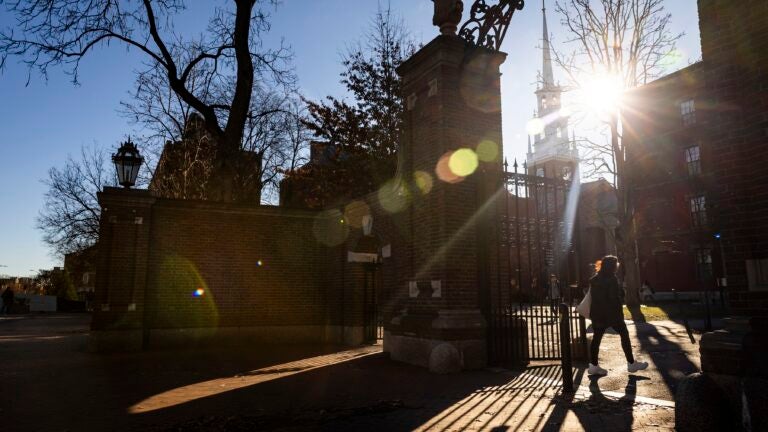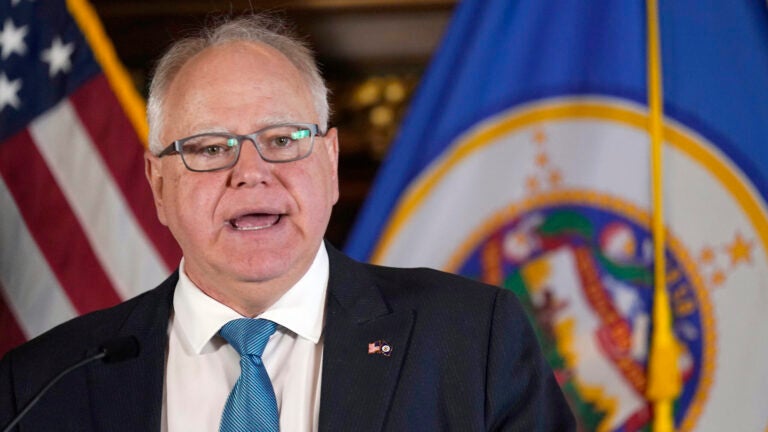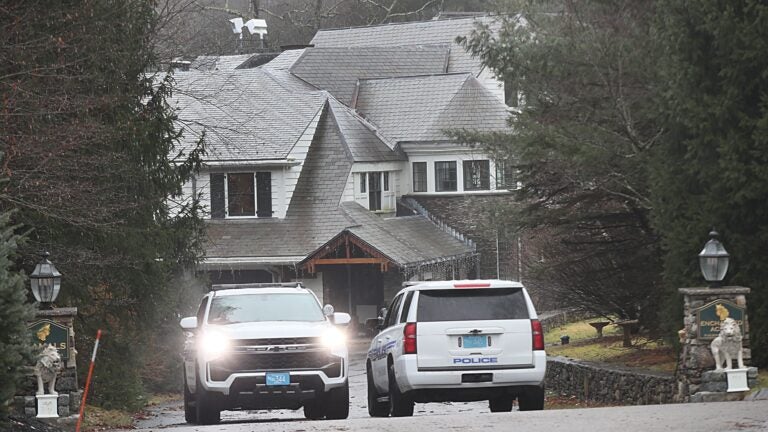Newsletter Signup
Stay up to date on all the latest news from Boston.com

After months of on-campus turmoil over the Israel-Hamas war, Harvard said Tuesday it would no longer make public statements on issues that don’t immediately affect the “university’s core function.”
The recommendation to keep silent on matters outside the university’s direct purview came from a working group that convened last month called the Institutional Voice Working Group. Harvard’s Interim President Alan M. Garber and other high-ranking university officials announced they had accepted the recommendation Tuesday.
“…the university has a responsibility to speak out to protect and promote its core function. And they must speak out on issues directly relevant to the university’s operation” the Institutional Voice Working Group wrote in its report. “The university and its leaders should not, however, issue official statements about public matters that do not directly affect the university’s core function.”
The move comes as a growing number of Harvard affiliates urged the school to stay silent on political issues in the wake of scalding controversy about Harvard’s decisions after the outbreak of the Israel-Hamas war, including a statement that condemned Hamas’ Oct. 7 attack on Israel signed by former university President Claudine Gay. Gay resigned in January after a congressional hearing in which she failed to say that calls for a genocide of Jews would violate school policy.
Harvard has been one of the most visible colleges struggling with campus tensions since the war’s outbreak. Last week, graduates walked out of Harvard’s commencement ceremony in support of Palestine and fellow students who were not allowed to receive their diplomas due to disciplinary sanctions.
The Institutional Voice Working Group and another group convened to address how to maintain open and civil dialogue on campus were called together by university administration in April to address questions about whether the school should speak out on controversial issues.
“In recent months and years, we have heard clearly that many in our community feel constrained in their ability to express their views on critically important questions,” Garber and Interim Provost John Manning wrote in a statement announcing the two initiatives. “More and more members of our community have also asked whether and when the University should use its official voice to address matters of social and political significance.”
The institutional voice group, composed of eight faculty members representing multiple Harvard colleges, assembled 31 focus groups made up of more than 1,000 faculty, students, staff, and alumni to help make its decision, according to the school. It also conducted an online poll and researched other schools’ approach to speaking out on certain issues.
In its report, the working group said Harvard’s “core function” is to create an environment where affiliates can “research, teach, and learn.”
“[Harvard] commits itself to the values of free inquiry, intellectual expertise, and productive argument among divergent points of view,” the group wrote.
Speaking out on controversial issues, the report says, will make it difficult for the school to create an environment of openness to all viewpoints and ideas.
“If the university adopts an official position on an issue beyond its core function, it will be understood to side with one perspective or another on that issue,” the group wrote. “When speaking in their official roles… [university leaders] should restrict themselves to matters within their area of institutional expertise and responsibility: the running of a university.”
Faculty members speaking on an issue based on their own expertise is acceptable because they are not speaking on behalf of the university, the report says.
The new policy is a marked change for Harvard. When Russia invaded Ukraine in 2022, former Harvard President Lawrence Bacow issued a statement saying the school “stands with the people of Ukraine.”
“The University has been making statements about all sorts of things for a long time,” Alison Simmons, a co-chair of the institutional voice group, told The Harvard Gazette. But increased political polarization and the rapid pace at which a statement can spread through social media have changed things for the school, according to Simmons.
Harvard is not the first to say it will keep quiet about situations that don’t affect the school directly. The University of Chicago formalized a policy of institutional neutrality on political and social issues in 1967.
Vanderbilt University in Tennessee and the University of North Carolina are among the schools that have adopted a similar policy more recently. Affiliates at both Yale and Columbia universities have been calling on their schools to institutionalize the strategy.
Harvard’s policy does not say it is adopting a policy of neutrality, but one of silence on issues outside of its direct mission. In fact, the working groups’ report found that the school “is not a neutral institution.”
“It values open inquiry, expertise, and diverse points of view, for these are the means through which it pursues truth. The policy of speaking officially only on matters directly related to the university’s core function, not beyond, serves those values” the report reads.
Instead of issuing “statements of empathy” to students affected by global events, Harvard will focus on expanding resources to support affected community members, it said.
University administrators acknowledged that it would take time for the new regulations to be codified and applied.
“The process of translating these principles into concrete practice will, of course, require time and experience, and we look forward to the work ahead,” administrators wrote in Tuesday’s statement.
Stay up to date on all the latest news from Boston.com





Stay up to date with everything Boston. Receive the latest news and breaking updates, straight from our newsroom to your inbox.
Conversation
This discussion has ended. Please join elsewhere on Boston.com